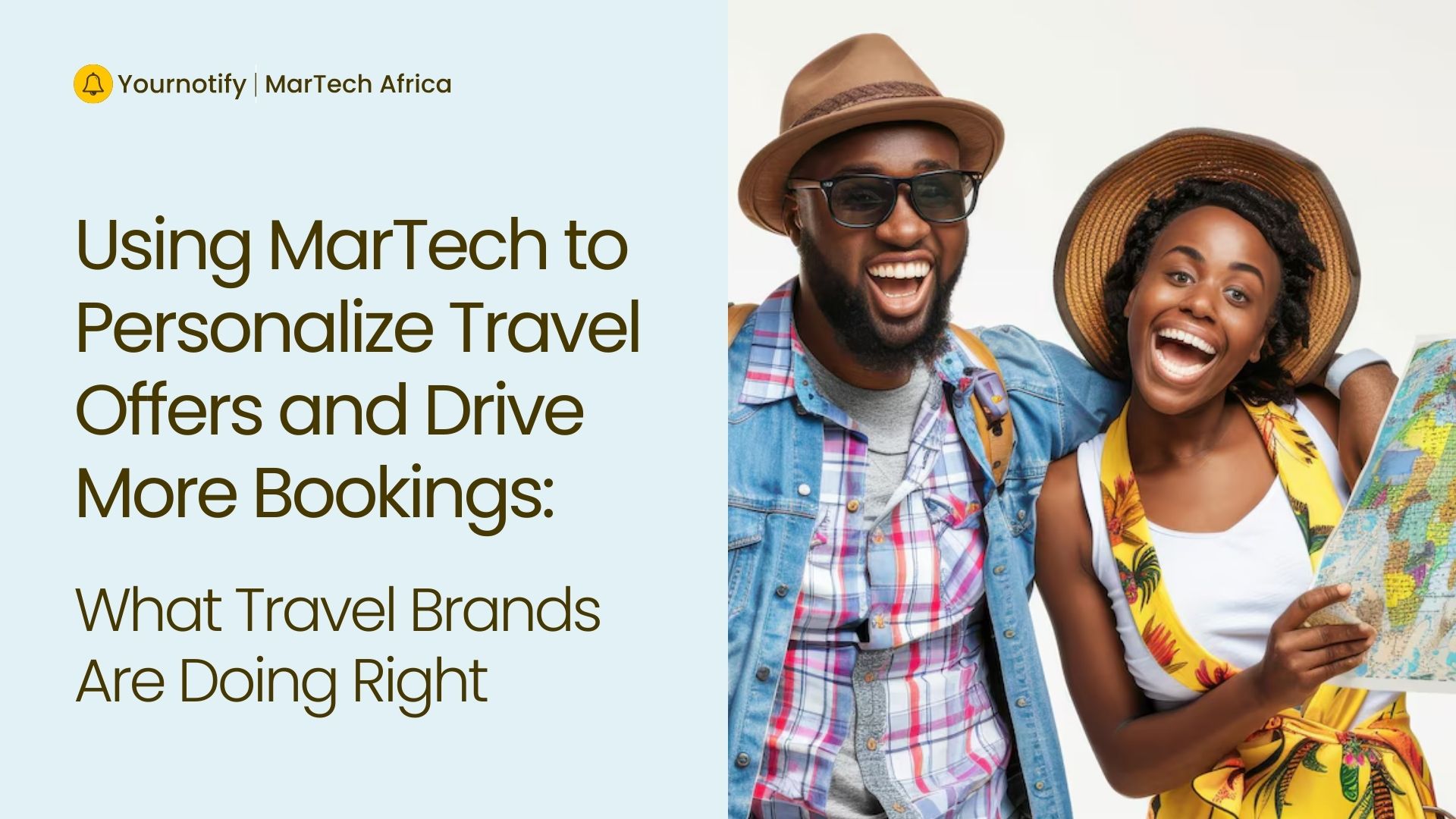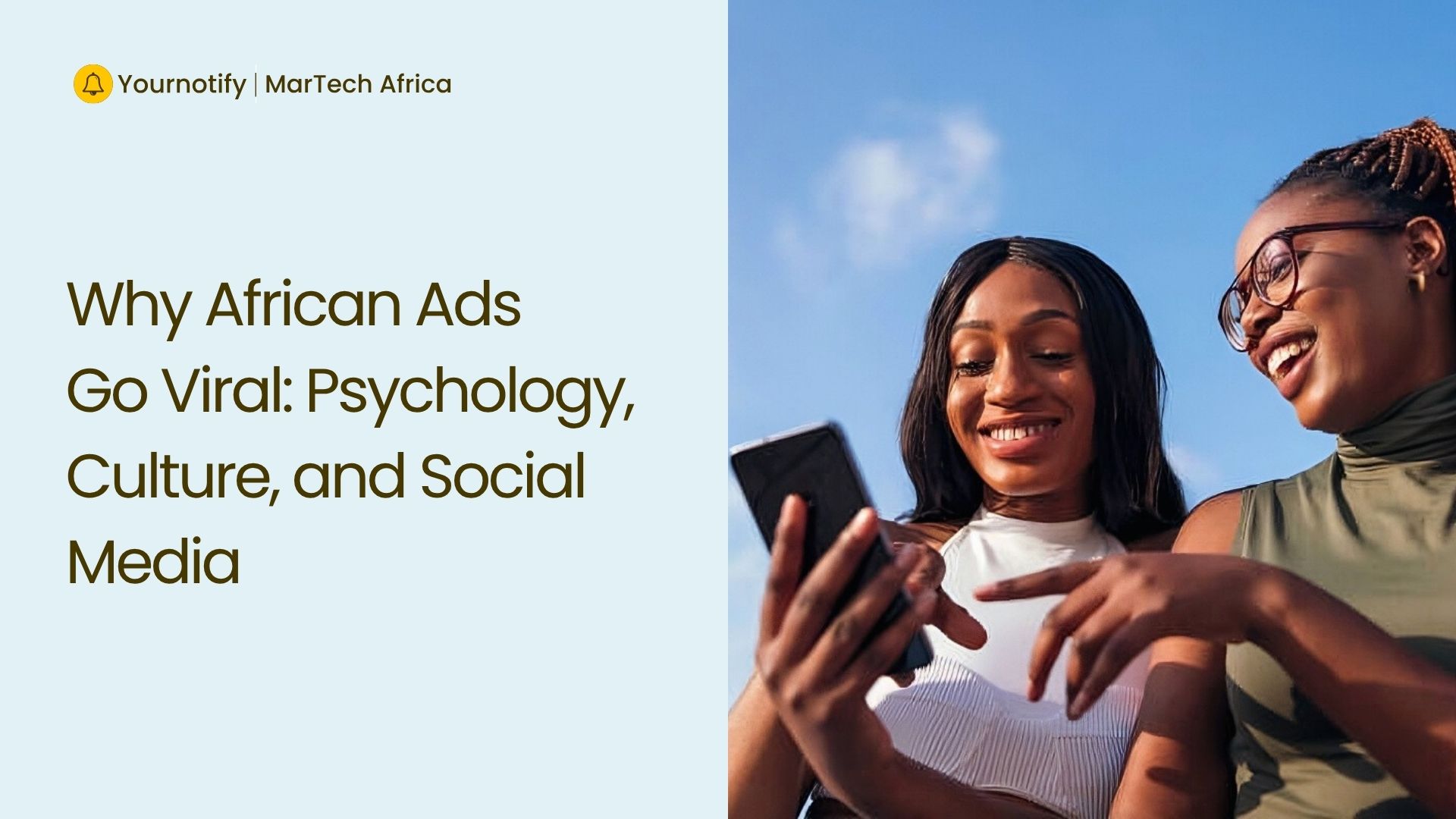Scroll through your phone today and you’ll see dozens of fintechs promising seamless transfers, skincare…

Using MarTech to Personalize Travel Offers and Drive More Bookings: What Travel Brands Are Doing Right
In the digital age, the travel industry is no longer just about destinations, it’s about experiences. And experiences, as it turns out, are increasingly driven by data. The digital transformation has intensified competition among travel brands, making personalization no longer a luxury but a critical survival strategy.
In research by Forrester, 57% of B2C and 75% of B2B customers stated that personalized experiences make them “much more likely” or “significantly more likely” to stay loyal to a brand. Additionally, 62% of industry leaders who implement personalization strategies have seen customer experience improvements that surpassed their expectations.
To achieve effective personalization, businesses must consolidate customer data into a single, unified profile, ensuring consistent experiences across both digital and in-person touchpoints. In response, many travel brands are now leveraging Marketing Technology (MarTech) to deliver personalized travel offers, strengthen customer engagement, and boost bookings.
Key Factors Driving This Demand
- Evolving Consumer Expectations – Today’s travelers expect more than one-size-fits-all deals. They seek personalized travel offers, flexible booking options, and tailored experiences that match their unique preferences and lifestyles.
- Advancements in Technology – Innovations in AI, big data, and IoT are enabling travel companies to gather, interpret, and apply customer insights, empowering them to deliver highly relevant personalize travel offers.
- Standing Out Through Personalization – In a crowded marketplace, brands that embrace personalization gain a competitive edge by offering more meaningful and customized experiences, unlike competitors who rely on generic offerings.
- The Mobile-First Traveler – With the widespread use of smartphones and smart assistants, delivering personalized travel offers through mobile apps and digital platforms is now a key factor in retaining and satisfying modern travelers.
Here’s How Travel Brands Personalize Travel Offers
1. Leveraging Customer Data Platforms (CDPs) for a Unified View
Travelers interact across multiple touchpoints, from websites to customer service chats. CDPs bring together this data into unified profiles, allowing marketers to understand and respond to individual booking behaviors and preferences with personalized travel offers.
Example: A travel brand recognizing a customer’s preference for beach vacations in May can trigger a personalized travel offer for a summer resort.
2. AI-Powered Recommendation Engines
AI is revolutionizing how travel brands serve customers, making it possible to recommend destinations, packages, and services in real time, resulting in highly relevant personalized travel offers.
Example: Expedia uses AI to analyze browsing behavior and recommend options tailored to the traveler’s past interests.
3. Dynamic Email and SMS Campaigns
Email and SMS remain vital channels, especially when infused with real-time personalization. MarTech tools enable timely delivery of personalized travel offers based on user behavior.
Example: After abandoning a flight search, a user receives a message with a discount or similar flight options, nudging them with a timely, personalized travel offer.
4. Geo-Targeting and Location-Based Offers
With geo-location data, brands can deliver personalized travel offers based on a traveler’s current or frequently visited locations.
Example: A travel app may detect a user at an airport and offer last-minute hotel deals, a contextual and personalized travel offer that adds value instantly.
5. Omnichannel Personalization
Today’s traveler moves between devices. MarTech ensures a consistent experience across platforms, with personalized travel offers appearing on apps, emails, and chatbots.
Example: After searching for ski trips on desktop, users might see related gear discounts and vacation deals on their mobile app—demonstrating an omnichannel personalized travel offer strategy.
6. Social Listening and Sentiment Analysis
By monitoring social media and feedback, brands can refine their services and deliver more relevant personalized travel offers based on actual traveler sentiment.
Example: Brands spotting frustration with layovers can promote direct flights or bundled transport solutions as tailored offers.
7. Loyalty Program Personalization
MarTech allows loyalty programs to go beyond points. Instead, they provide value through personalized travel offers that reflect the user’s unique interests and travel habits.
Example: A frequent spa-goer receives a complimentary massage voucher rather than a generic discount—enhancing loyalty through a thoughtful, personalized travel offer.
Future Trends in Travel Technology Services Personalization
AI-Driven Hyper-Personalization
Next-gen MarTech will allow brands to deliver personalized travel offers in real time based on contextual insights like weather, mood, or past experiences.
AR and VR for Immersive Personalization
Travelers will preview destinations through VR and receive real-time AR-powered personalized travel offers based on where they’re standing or exploring.
Biometric-Based Services
Biometrics will allow seamless check-ins and ultra-targeted personalized travel offers, from in-flight services to room upgrades, based on stored preferences.
Blockchain for Secure Personalization
Blockchain will ensure data privacy while enabling travelers to control what information they share to receive personalized travel offers that are both secure and tailored.
MarTech is transforming the travel industry by enabling data-driven personalized travel offers at scale. By tapping into real-time customer data and behavior, travel brands can create not only seamless booking experiences but deep emotional connections with their customers. As the industry evolves, the ability to deliver timely, relevant, and personalized experiences will be the defining factor in winning traveler loyalty.
Related Content
Trends in Marketing Technology for African Businesses in 2025


